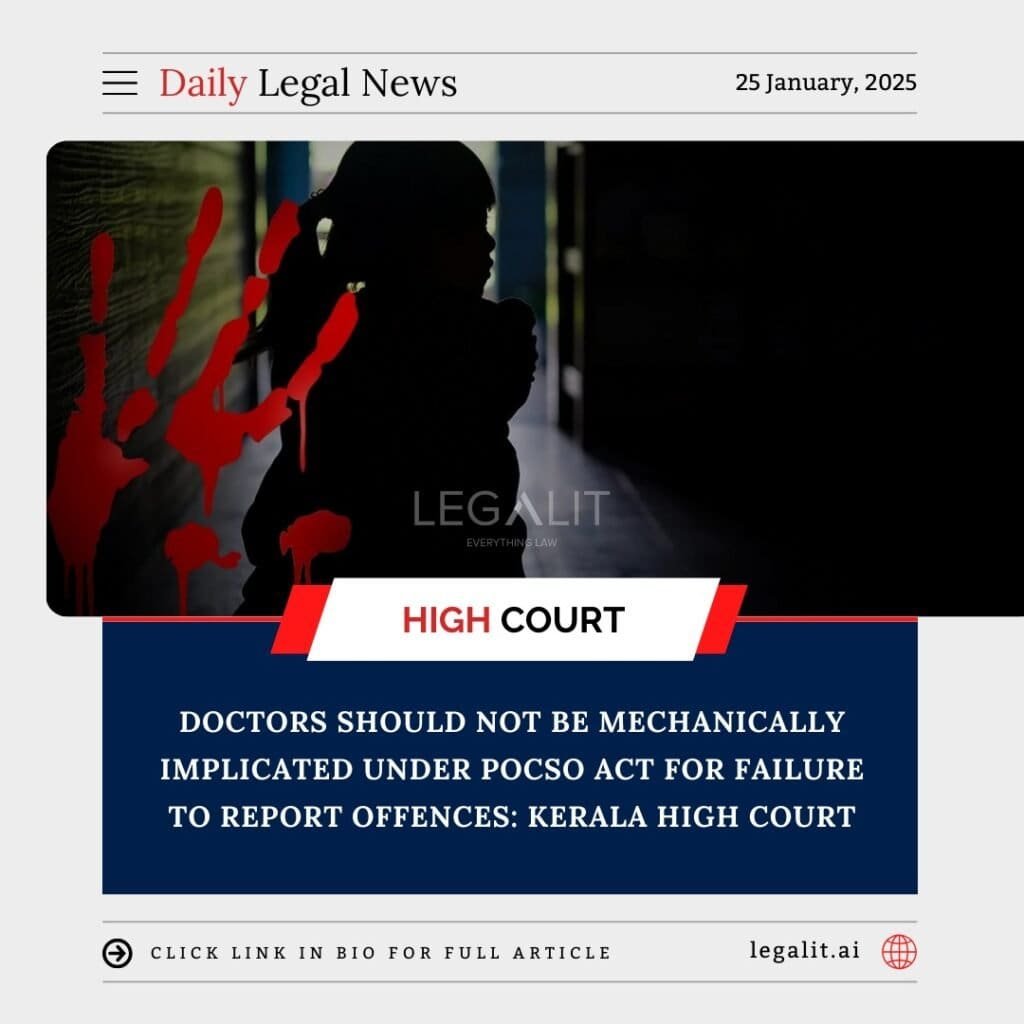
Background
The Kerala High Court recently emphasized that medical professionals should not face automatic prosecution under the Protection of Children from Sexual Offences (POCSO) Act merely for failing to report suspected sexual offences against minors. The court highlighted that a more nuanced approach must be adopted in such cases to prevent unnecessary harassment of medical practitioners.
The observation was made while adjudicating a case involving a doctor accused of not reporting a POCSO offence.
Court’s Observations
- Role of Medical Professionals:
- The court recognized the pivotal role played by doctors in society, particularly in treating victims of sexual offences.
- It noted that a doctor’s primary duty is to provide medical care, and they may not always be in a position to conclusively determine the occurrence of a sexual offence.
- Reporting Obligations:
- Under Section 19 of the POCSO Act, any person, including medical professionals, is obligated to report suspected offences against children.
- However, the court clarified that this obligation should not be enforced in a rigid manner, especially when the doctor’s failure to report is not intentional or deliberate.
- Harassment of Doctors:
- The court expressed concern over the misuse of the law to harass medical professionals, cautioning that it could deter them from providing necessary care to victims.
- It underscored the need to balance the enforcement of the POCSO Act with the protection of doctors from undue legal action.
Key Takeaways
- Case-by-Case Assessment:
- The court stressed the importance of examining the circumstances of each case before implicating medical professionals under the POCSO Act.
- Prosecution should only be initiated when there is clear evidence of intentional negligence or misconduct.
- Need for Clarity:
- The judgment highlights the need for clearer guidelines regarding the reporting obligations of medical professionals under the POCSO Act.
- It also suggests sensitizing law enforcement agencies to the challenges faced by doctors in such scenarios.
Implications
- Protection for Doctors:
- The ruling provides relief to medical professionals, ensuring they are not unfairly targeted for unintentional lapses in reporting offences.
- It reinforces the principle that laws should not hinder the effective functioning of essential services like healthcare.
- Judicial Precedent:
- This decision serves as an important judicial precedent, promoting a balanced interpretation of the POCSO Act.
- Strengthened Victim Support:
- By preventing unnecessary prosecution of doctors, the ruling encourages them to focus on providing medical assistance to victims without fear of legal repercussions.
Conclusion
The Kerala High Court’s ruling underscores the importance of a balanced approach in enforcing the POCSO Act, particularly concerning medical professionals. By addressing the potential misuse of the law, the court has ensured that doctors can carry out their duties without fear of unwarranted legal action. At the same time, it reiterates the need for vigilance in protecting children from sexual offences. This nuanced perspective will likely contribute to a more equitable application of the law.